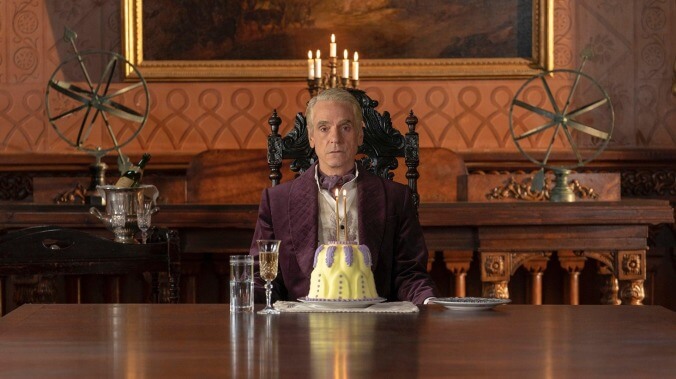Once more for the people in back: Alan Moore hates every Watchmen adaptation
The idea of adapting a comic about comics to the screen makes no sense to the 68-year-old writer and magician

Unfortunately, it’s time for your daily reminder that comics creator Alan Moore hates every adaptation of his work. Yes, that includes Zack Snyder’s Watchmen, James McTigue’s V For Vendetta, and The Hughes Brothers’ From Hell. So naturally, it brings us no joy (well, some joy) reporting this repeatedly. But as a new day delivers sunshine unto the living organisms on this blue marble, so, too, does it bring another interview in which Alan Moore criticizes how the broader culture has received his work.
In a new, wide-ranging talk with GQ, Moore expands upon his relationship with religion (“I still have a very healthy philosophical relationship with my second-century Roman snake-puppet, Glycon, who I have come to believe is probably a lot more significant than I originally assumed him to be”), the royal family (“nobody thinks about it very much”), and, of course, adaptations of his work (“this is embarrassing to me”). This time, his target is Damon Lindelof’s critically-acclaimed Watchmen television series from 2019, which Moore hasn’t seen for good reason.
“I would be the last person to want to sit through any adaptations of my work,” he said. “From what I’ve heard of them, it would be enormously punishing. It would be torturous, and for no very good reason. There was an incident—probably a concluding incident, for me. I received a bulky parcel, through Federal Express, that arrived here in my sedate little living room. It turned out to contain a powder blue barbecue apron with a hydrogen symbol on the front.”
In addition to the humiliating olive branch extended by Watchmen TV series creator Damon Lindelof—who thought Alan Moore would be charmed by a Doctor Manhattan apron?—the Lost pariah also sent a “frank letter” filled with “neurotic rambling.”
I think it opened with, “Dear Mr. Moore, I am one of the bastards currently destroying Watchmen.” That wasn’t the best opener. It went on through a lot of, what seemed to me to be, neurotic rambling. “Can you at least tell us how to pronounce ‘Ozymandias’?” I got back with a very abrupt and probably hostile reply telling him that I’d thought that Warner Brothers were aware that they, nor any of their employees, shouldn’t contact me again for any reason. I explained that I had disowned the work in question, and partly that was because the film industry and the comics industry seemed to have created things that had nothing to do with my work, but which would be associated with it in the public mind. I said, “Look, this is embarrassing to me. I don’t want anything to do with you or your show. Please don’t bother me again.”
Ultimately, Moore hates how the readers have misunderstood his work, and who could blame him? He created Rorschach, “a mumbling psychopath who clearly smells, who lives on cold baked beans, who has no friends because of his abhorrent personality,” as a formal exercise to “show that any attempt to realize these figures in any kind of realistic context will always be grotesque and nightmarish.” But, unfortunately, he found that Neo-nazi websites were using Watchmen quotes because they “seemed to think, uh, yeah, dark, depressing superheroes are, like, cool.” Moore seems to be one of the few public figures that thinks siding with Nazis is abhorrent, and for this, we thank him.
As for whether Moore thinks superheroes are cool, elsewhere in the interview, he describes knowing the “secret identity of Chameleon Boy” as “sort of an illness.” Moore has since disowned his work from his more famous run in the 80s, regarding the reception to his comics as “too painful.” This all tracks with what Moore said of our culture’s obsession with superheroes last week: “That kind of infantilization—that urge towards simpler times, simpler realities—that can very often be a precursor to fascism.”
“It seemed to me that what people were taking away from works like Watchmen or V For Vendetta wasn’t the storytelling techniques, which to me seemed to be the most important part of it. It was instead this greater leeway with violence and with sexual references. Tits and innards.”
Read the full interview at GQ.